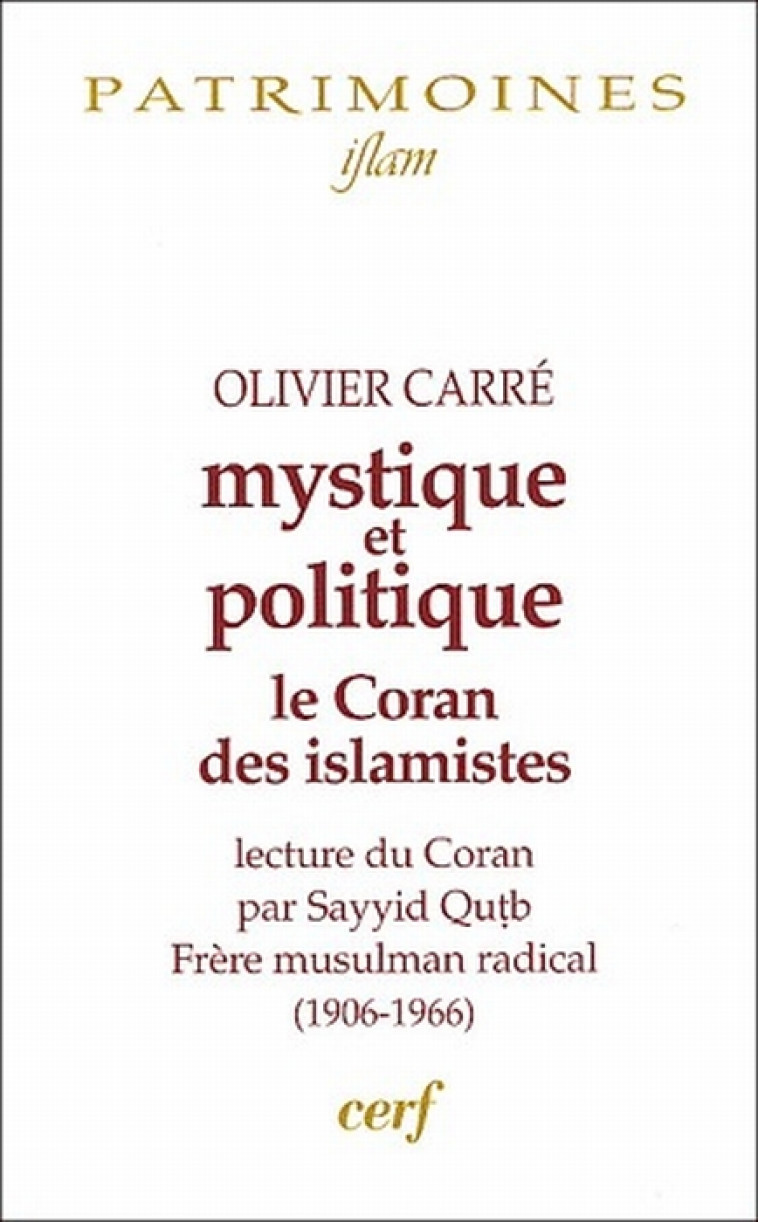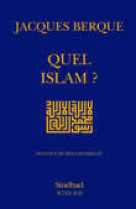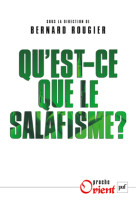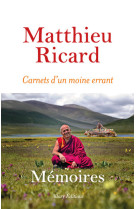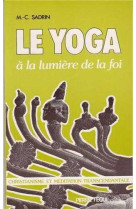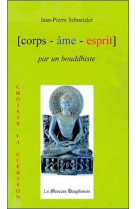Mystique et politique
Olivier carré
Cet ouvrage est une nouvelle version, revue et augmentée, de « Mystique et politique : lecture révolutionnaire du Coran par Sayyid Qutb, Frère musulman radical », paru en 1984 (Éd. du Cerf - Presses de la Fondation nationale des sciences politiques). Cette édition de 1984 a souvent été considérée comme un exposé de la « bonne doctrine musulmane », ce qui est un contresens fréquent : en effet, on identifie aisément « islamisme » et islam, tout en déclarant parfois le contraire. Sayyid Qutb est, après Bannâ, le principal penseur des Frères musulmans. Interpellé, arrêté, emprisonné puis exécuté en 1966, il devient le symbole du Frère musulman. Son texte, « Fî zilâl al-qur'ân » (À l'ombre du Coran), est le texte phare des mouvements islamistes actuels. Cette nouvelle étude critique s'attache à distinguer l'islam dans sa grande tradition et l'« islamisme » actuel dont les principes ont été élaborés par Qutb avec intelligence et enthousiasme. Olivier Carré étudie la personnalité même de Sayyid Qutb et les conditions de production du « Fi zilâl al-qur'an ». Deux chapitres nouveaux analysent le contenu proprement religieux de la doctrine : les croyances ou la dogmatique et les pratiques, dont l'expérience spirituelle bref, l'enseignement de Sayyid Qutb, maître spirituel. L'ouvrage se clôt sur un chapitre consacré à l'extrémisme radical de Qutb lui-même par rapport au « qutbisme » actuel d'une part et à la remarquable résistance intellectuelle « anti-qutbiste ». En appendice, le lecteur trouvera un choix abondant de textes éclairant de manière significative « Fî zilâl al-qur'an ».
--
This is a new revised and enriched version of ‘Mystique et politique : lecture révolutionnaire du Coran par Sayyid Qutb, Frère musulman radical', first published in 1984 (Éd. du Cerf - Presses de la Fondation nationale des sciences politiques). That 1984 edition has often been regarded as an exposé of the ‘good Muslim doctrine', which is a common misinterpretation: in reality, one can casually confound ‘Islamism' and Islam, even while stating the opposite. Sayyid Qutb is, after Bannâ, the leading thinker of the Muslim Brotherhood. Arrested, convicted, imprisoned then executed in 1966, he has become the symbol of the Muslim Brotherhood. His book, ‘Fî zilâl al-qur'ân' (In the Shadow of the Koran), is the guiding text of current Islamist movements. This new critical study attempts to distinguish Islam and its great tradition from today's ‘Islamism' whose tenets were established by Qutb with intelligence and enthusiasm. Olivier Carré explores the personality of Sayyid Qutb and the circumstances under which ‘Fi zilâl al-qur'an' was produced. In two new chapters, the religious content of the doctrine is analysed as well as the beliefs, or dogma, and the practice, including spiritual experiences in short, the complete teachings of the spiritual leader Sayyid Qutb. The work concludes with a chapter devoted to Qutb's own radical extremism as compared to present day ‘qutbism' on the one hand and a remarkable ‘anti-qutbist' intellectual resistance on the other. In an appendix, the reader will find an abundance of texts that cast significant light on ‘Fî zilâl al-qur'an'.

